- Учителю
- Урок английского языка в 7 классе по теме
Урок английского языка в 7 классе по теме
What are you asked to do to help the Earth?
Цели:
Социокультурный аспект - знакомство с экологическими действиями в Британии, правилами поведения в загородной зоне; понятиями и реалиями Woodsy Owl, the Forest Service;
Развивающий аспект - развитие оперативной памяти, развитие дедуктивного мышления, развитие способности к функционально - адекватному восприятию грамматических структур;
Воспитательный аспект - формирование ответственного отношения к природе; формирование желания помочь природе;
Учебный аспект - формирование грамматических навыков чтения и говорения (страдательный залог с неопределенной формой глагола)
Сопутствующая задача: развитие умения читать с общим охватом содержания.
Речевой материал:
Рецептивный: лексический - a river bank;
Продуктивный - a plant, wild;
Грамматический - страдательный залог с неопределенной формой.
Ход урока
Звучит песня М.Джексона «Песня земли» (Earth Song). /Музыкальный клип/
What is this song about?
This song is about environmental problems on the Earth.
What ecological problems are shown in the film?
-
The animals (elephants) are killed.
-
The forests are destroyed.
-
Air is polluted.
-
People are hurt.
-
The climate is changed.
Yes you are right. The life on the Earth depends on ecology. I feel sorry that there are so many problems in the world and in our village too. At home you prepared your stories about it. I am sure you are ready to answer the question: "What are your main concerns about the environment in our home village?
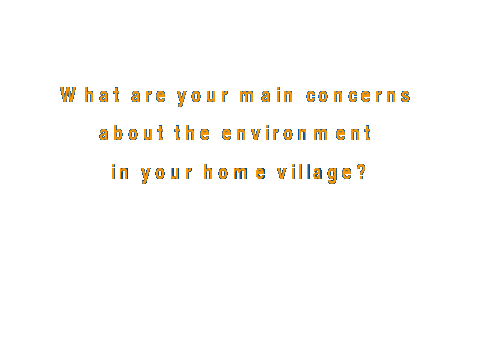
/ответы детей/
I am happy that you can see all these problems and you are worried about them. British children also think much about helping the Earth. You can read a letter from Elisabeth in ex.1 p.80. Read the letter and say: "What does she want to do to help the Earth?"
-
She wants to recycle.
-
She wants people to organize recycling properly.
What are Elisabeth's friends told to do? (Что говорят делать друзьям Элизабет?)
/учащиеся вычитывают из текста предложения, переводят их. Предложения появляются на слайде./
-
We are told not to recycle.
-
We are allowed to recycle.
-
They are asked to recycle plastic bottles, paper and cartoons.
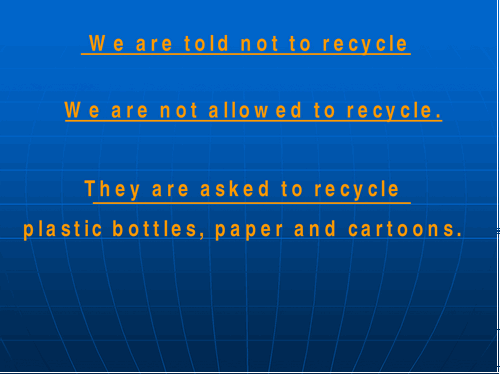
-
Какая грамматическая форма употреблена в предложении?
-
Что необычного в употреблении страдательного залога в этих предложениях?
-
Когда мы будем употреблять эти структуры?
Учащиеся делают вывод: Когда мы сообщаем, что кому-либо говорят, советуют, просят что-то сделать, мы используем Am/is/are+V3+infinitive.

Pay attention that we are discussing the problem: "What are we asked to do to help the Earth?"/дети переводят проблемный вопрос/

Russian children also think about the Earth/ex.2p.81./What are you told, allowed, asked to do? And one problem, dear friends. Some teachers in our classroom can't understand English very well. Help them! Make your sentence and translate it from English into Russian.
/учащиеся составляют предложения по опоре./
Do you enjoy going on a picnic? But remember! When you visit countryside in Britain you should follow special rules. What are you asked to do?
/Упражнение выполняется письменно. После каждого предложения делается самопроверка. Правильный ответ демонстрируется на слайде./ 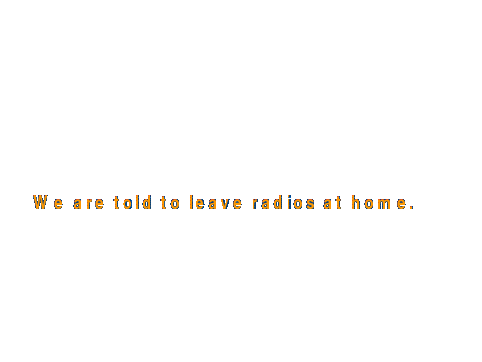
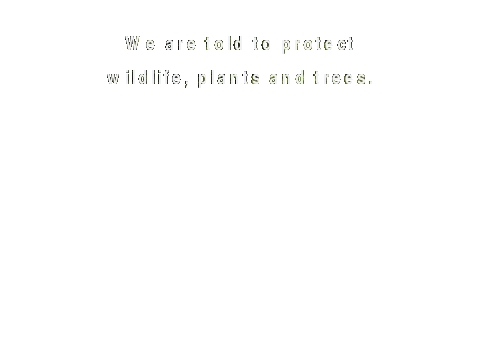


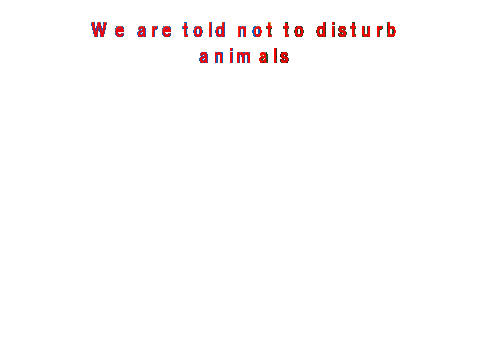
In America there is the Forest Service, which takes care of the environment.
Woodsy Owl is a mascot of the Forest service. It suggest ways to help our Earth.

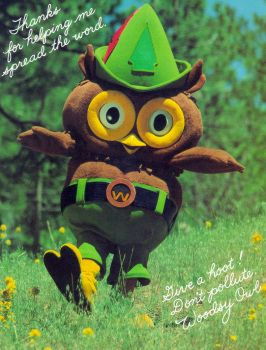
Обратить внимание на разные значения выражения to give a hoot.
-
Ухать как сова
-
Помогать
Учащиеся выполняют Ex.4p.82 (Устно)
There were many great ideas how to help nature. Do you do anything like that? Why? Why not? (ученики составляют монологические высказывания с опорой и без нее)
-
Are there any environmental groups in Russia?
-
What advice do they give?
You will learn about it if you do your homework. Ex.7.p.82.
4